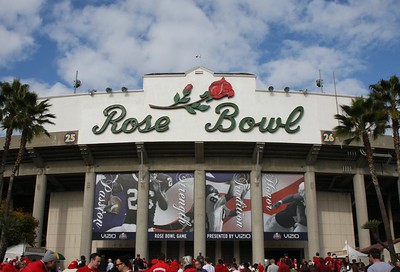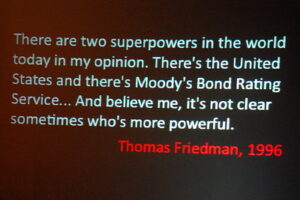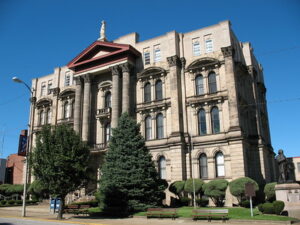In case anyone is unclear about the danger of revenue backed debt to taxpayer funded entities, consider the Rose Bowl. At a special Pasadena City Council meeting earlier this month, the RBOC announced that it needs an additional $26M over the next five years to pay its revenue backed debt service obligations. The stadium’s growing debt now leaves the RBOC desperately searching for “revenue generators” to support its operations. Although the RBOC manages the stadium, the City of Pasadena owns it and the adjacent Brookside Golf Course.
The RBOC and the City of Pasadena have differing analyses of the amount of money needed to pay the 100-year-old facility’s revenue-backed debts. Until recently, the Rose Bowl’s operations were able to pay its debt service, enabling the City of Pasadena to pay nothing for the facility’s loans. Since early 2020, however, the facility has sustained a wave of event cancellations that has destabilized not only the finances of the Rose Bowl, but also those of the City of Pasadena.
In FY 2021, the City of Pasadena paid $11.5M in debt service obligations for the Rose Bowl. Those funds came from the city’s operating budget. The City predicts another debt payment of $10M in FY 2022, followed by a $12.5M obligation in FY 2023. The Rose Bowl’s increasing debt obligations combine with its estimated annual revenue shortfalls of between $5.4M and $7.7M over the next several years.
According to Pasadena’s City Manager, Steve Mermell, the City cannot afford to divert its operational funds to pay the stadium’s revenue backed debts for long. Mermell indicated that the situation would soon require the City to tap into its reserves to sustain itself and the stadium.
Revenue backed debt comes at a steep price
The City has already considered – and rejected – a number of revenue generating ideas, including building and operating an ice rink, a performance stage or a hotel; leasing or selling portions of the property, and selling naming rights. The City of Pasadena is considering asking Los Angeles County for financial assistance. Currently the stadium owes about $200M to its bond holders.
Most of the debt arose from a 2016 $180M renovation project. The project was meant to improve the Rose Bowl’s marketability. It faces continuing pressure from other larger, more modern venues in Southern California. Despite the renovation, the Rose Bowl is still not large enough to host signature events like the Super Bowl. Additionally, changes to the College Football Playoff mean that the Tournament of Roses game is not as prestigious as it once was.
Declining revenue has been a nagging concern for the facility. Even before the pandemic, attendance at “bread-and-butter” events like UCLA home football games and the Tournament of Roses game fell by as much as 60% over the past five years. The revenue losses mean that the stadium’s operations no longer reliably pay for its debts. According to multiple analyses, this is unlikely to change in the foreseeable future.
So, no one gets to be surprised when the Rose Bowl goes under. Despite the assurances of the RBOC that its operations would pay for itself, the City of Pasadena is still on the hook for $200M in bond debt because no one seriously considered the enormous risk associated with the bet that the RBOC was placing.
Projecting risk does not require a crystal ball
Could anyone have predicted the pandemic? No. But simple “what-if” exercises could have turned up the potential downsides of revenue backed debt. “What if attendance drops at UCLA home games?” “Suppose the NCAA makes changes to the College Football Playoffs?” “What if we can’t attract enough events?” “How will these impact our ability to repay our debts?”
These same simple exercises are missing from WCC’s Health and Fitness Center calculations. No one bothered to ask what would happen if operations didn’t cover the building’s debts. The Trustees didn’t consider the impact of sustained multi-million-dollar losses by the HFC on WCC’s General Fund.
Which is now happening.
Whether you’re considering the Rose Bowl, Ypsilanti’s Water Street, or WCC’s Health and Fitness Center, it’s the same problem on different scales. The people who were supposed to be asking questions and considering all the risks didn’t do their jobs. As a result, the taxpayers will suffer.
Photo Credit: Michael Li , via Flickr






















